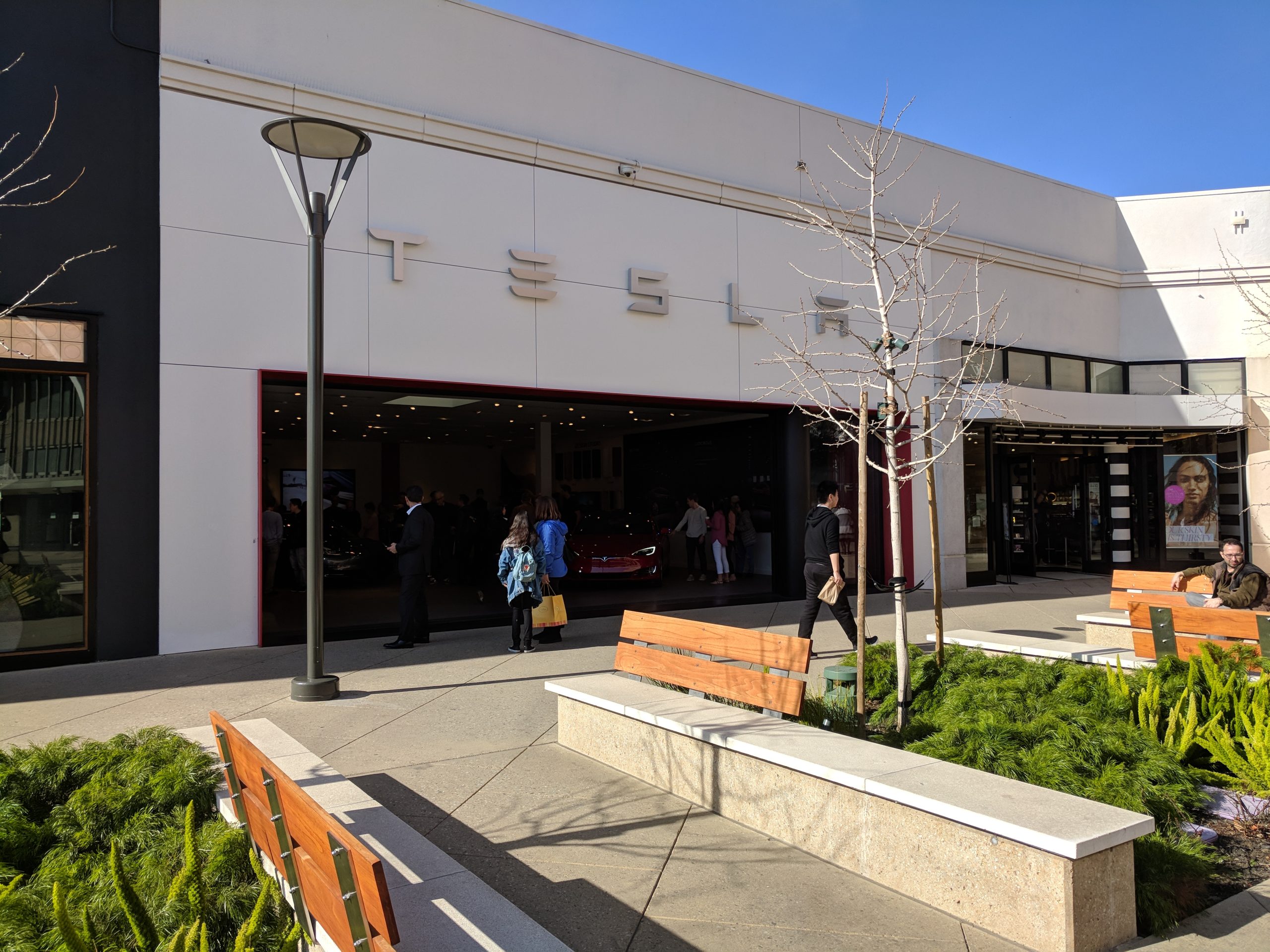
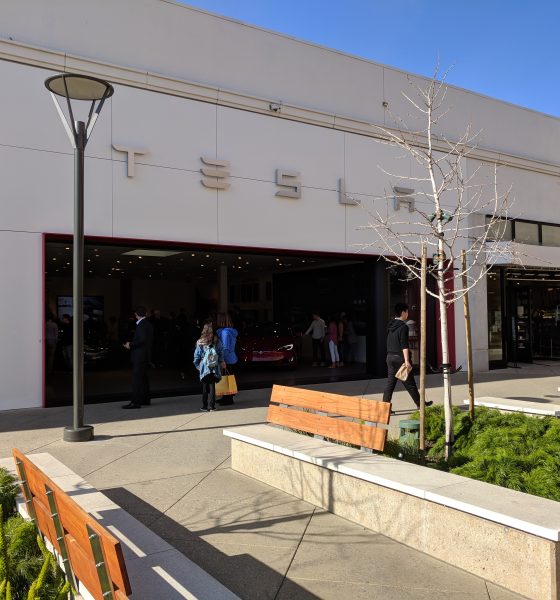
News
Tesla, Rivian still face complicated direct sales laws across U.S. states
Executives from both Tesla and Rivian have commented on the decades-long fight to overturn direct vehicle sales bans across many U.S. states, reigniting a long-held conversation in the electric vehicle (EV) community about dealership policy lobbying groups and online sales models.
Tesla has managed to side-step direct sales bans in many states through legal loopholes such as leasing-only models, processing purchases as out-of-state transactions, or simply opening stores in exempted tribal territories where the company’s stores will be exempt from dealership mandates. In other states, the company is still completely prohibited from selling vehicles, such as in Louisiana, where a U.S. appeals court just upheld Tesla’s right to sue the state over the direct-sales ban in August.
In Connecticut last July, Tesla managed to open a store on sovereign Mohegan tribal land, effectively side-stepping the U.S. state’s ability to prohibit direct sales. The Connecticut Automotive Retailers Association (CARA), a dealership lobbying group, immediately spoke out against the decision, though it gained support from Governor Ned Lamont.
Elsewhere, Tesla, Rivian, and many others sporting a direct sales model also face state store limits, and some executives have recently highlighted the decades-long fight to overturn these kinds of laws.
Other states have bans on service centers, storefronts, or both, while some only allow Tesla to sell vehicles online, though they must make deliveries through a service center. The latter includes Texas, where Tesla’s headquarters is located and where it operates a U.S. Gigafactory. As for Rivian, it faces a similar situation through its Seattle retail “Space,” since company representatives are prohibited from sharing specific details on prices or receiving orders.
As such, the state-to-state laws can be difficult for EV companies like Tesla and Rivian to wade through and operate under, so it shouldn’t come as much of a surprise when they point to dealership lobbying practices that keep them in place as being bad—or to their local teams who are working on overdrive.
Rivian CEO on state-to-state dealership laws
In a report published on Thursday, Rivian CEO RJ Scaringe said that dealership franchise laws were “as close as you can get to corruption,” as stated during a discussion with InsideEVs about whether Rivian’s recent Volkswagen partnership could let the startup work through VW dealerships. The report has reignited long-held discussions about states where Tesla, Rivian, and others aren’t allowed to operate—and seemingly due to powerful lobbying from dealership groups.
“Unfortunately, in the United States, it’s not an easy question,” Scaringe said as to the proposition of selling through VW’s dealers. “We have this horrific state-by-state level of rules that are as close as you can get to corruption.
“I think you essentially have, like, lots of dealers have paid for laws that make it really hard for us to interact directly with the consumer,” the Rivian CEO adds.
RELATED: Tesla granted license for direct vehicle sales in Kentucky
Tesla VP of Finance on state-to-state dealership laws
As a follow-up to the story, Tesla VP of Finance Sendil Palani shared his thoughts in a post on Saturday, praising the company’s local teams in states where direct sales are actively banned:
Tesla has been pursuing the direct-to-consumer model for two decades, and it has been an enormous challenge to pursue what we believe is the best model for customers.
I spent a portion of this past week visiting our Northeast region, and was reminded about how these laws are among our most prominent challenge for Sales and Delivery. Local teams make a heroic effort across the entire customer journey: from allowing customers to learn about our product at non-licensed locations while observing restrictions on sales activities, to managing a large flow of deliveries through a small number of licensed locations, to ensuring that we can properly perform vehicle registration paperwork for multiple states and customer circumstances at each licensed location.
Our customers have to make heroic efforts of their own, from traveling long distances to pick up their vehicle to patiently enduring any kinks in the process.
Sadly, this is common throughout much of the country, resulting in higher costs and a worse customer experience for the affected regions.
U.S. states with bans on direct sales models like at Tesla, Rivian
- Alabama (includes service centers)
- Arkansas
- Connecticut (leasing is allowed; tribal land loophole)
- Iowa
- Kansas (includes storefronts)
- Kentucky
- Louisiana (Tesla allowed through special license, “service center” model)
- Nebraska
- New Mexico (includes service centers; tribal land loophole)
- Oklahoma
- South Carolina (includes service centers)
- Texas (Tesla sells through online loophole, “service center” model)
- West Virginia (includes storefronts)
- Wisconsin
U.S. states with store limits on direct sales models like at Tesla, Rivian
- Illinois (limited to 13)
- Maryland (limited to 4)
- Mississippi (limited to 1)
- New Jersey (limited to 4)
- New York (limited to 5)
- North Carolina (limited to 6)
- Ohio (limited to 3)
- Pennsylvania (limited to 5)
- Virginia (limited to 5)
What are your thoughts? Did I miss anything, or do you have a story or opinion to share regarding direct auto sales? Let me know at zach@teslarati.com, find me on X at @zacharyvisconti, or send us tips at tips@teslarati.com.
DOJ echoes Tesla argument in Louisiana direct sales appeal

News
Tesla seeks approval to test FSD Supervised in new Swedish city
Tesla has applied to conduct local Full Self-Driving (Supervised) testing in the city of Jönköping, Sweden.
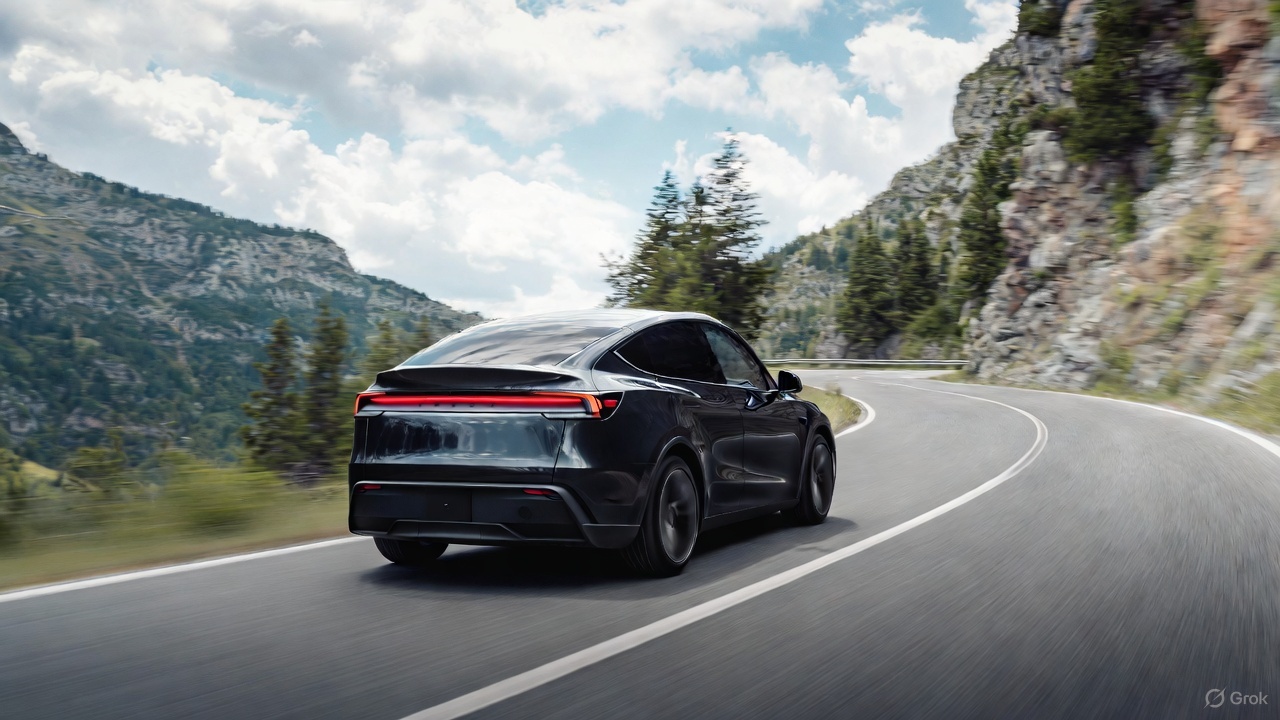
Tesla has applied to conduct local Full Self-Driving (Supervised) testing in the city of Jönköping, Sweden.
As per local outlet Jönköpings-Posten, Tesla has contacted the municipality with a request to begin FSD (Supervised) tests in the city. The company has already received approval to test its Full Self-Driving (Supervised) software in several Swedish municipalities, as well as on the national road network.
Sofia Bennerstål, Tesla’s Head of Public Policy for Northern Europe, confirmed that an application has been submitted for FSD’s potential tests in Jönköping.
“I can confirm that we have submitted an application, but I cannot say much more about it,” Bennerstål told the news outlet. She also stated that Tesla is “satisfied with the tests” in the region so far.
The planned tests in Jönköping would involve a limited number of Tesla-owned vehicles. Trained Tesla safety drivers would remain behind the wheel and be prepared to intervene if necessary.
Tesla previously began testing in Nacka municipality after receiving local approval. At the time, the company stated that cooperation between authorities, municipalities, and industry enables technological progress and helps integrate future transport systems into real-world traffic conditions, as noted in an Allt Om Elbil report.
If approved, Jönköping would become the latest Swedish municipality to allow local Full Self-Driving (Supervised) testing.
Tesla’s Swedish testing program is part of the company’s efforts to validate its supervised autonomous driving software in everyday traffic environments. Municipal approvals allow Tesla to gather data in urban settings that include roundabouts, complex intersections, and mixed traffic conditions.
Sweden has become an increasingly active testing ground for Tesla’s driver-assistance software in Europe, with regulatory coordination between local authorities and national agencies enabling structured pilot programs.
Elon Musk
Microsoft partners with Starlink to expand rural internet access worldwide
The update was shared ahead of Mobile World Congress.
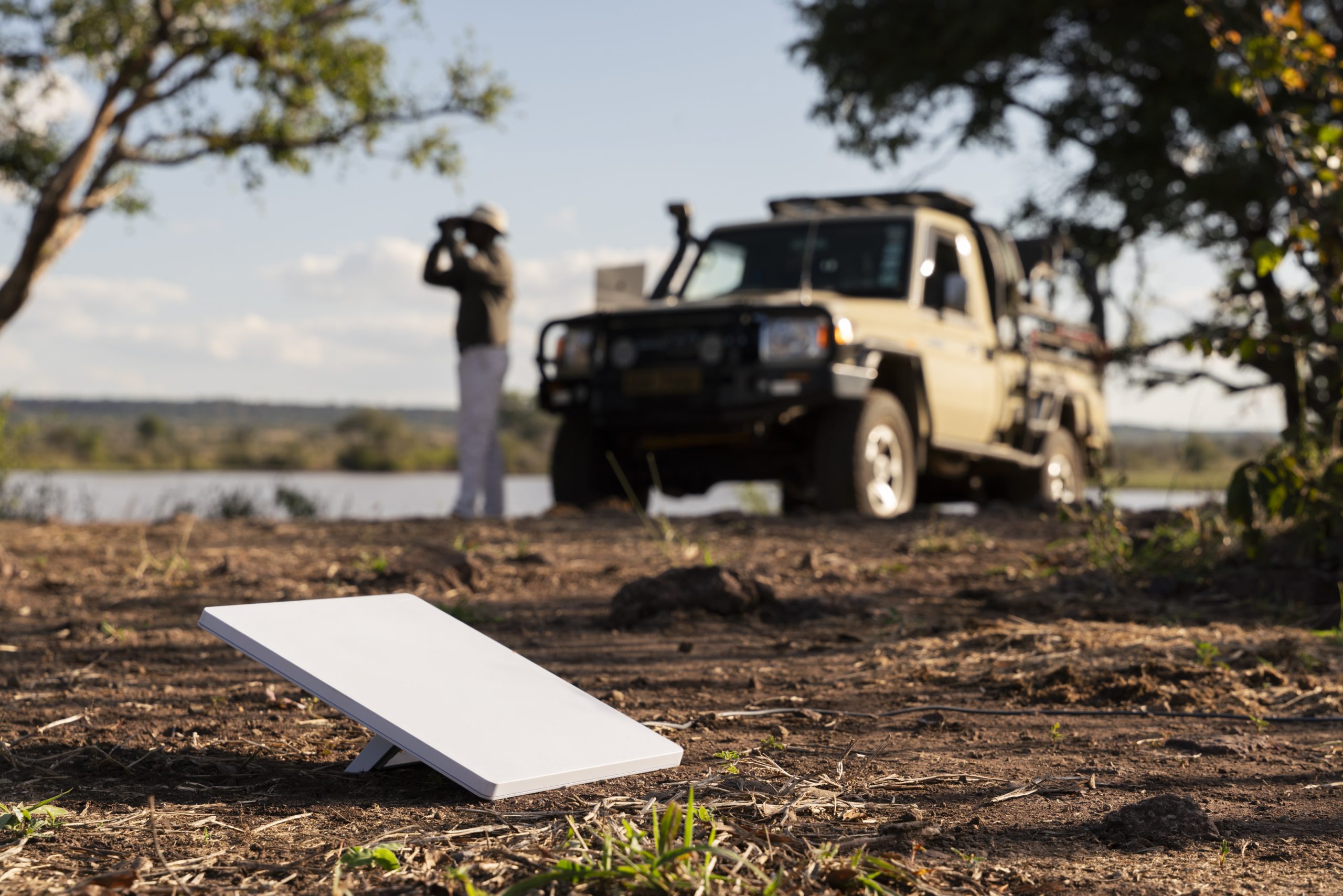
Microsoft has announced a new collaboration with Starlink as part of its expanding digital access strategy, following the company’s claim that it has extended internet connectivity coverage to more than 299 million people worldwide.
The update was shared ahead of Mobile World Congress, where Microsoft detailed how it surpassed its original goal of bringing internet access to 250 million people by the end of 2025.
In a blog post, Microsoft confirmed that it is now working with Starlink to expand connectivity in rural and hard-to-reach regions.
“Through our collaboration with Starlink, Microsoft is combining low-Earth orbit satellite connectivity with community-based deployment models and local ecosystem partnerships,” the company wrote.
The partnership is designed to complement Microsoft’s existing work with local internet providers and infrastructure companies across Africa, Latin America, and India, among other areas. Microsoft noted that traditional infrastructure alone cannot meet demand in some regions, making low-Earth orbit satellite connectivity an important addition.
Kenya was cited as an early example. Working with Starlink and local provider Mawingu Networks, Microsoft is supporting connectivity for 450 community hubs in rural and underserved areas. These hubs include farmer cooperatives, aggregation centers, and digital access facilities intended to support agricultural productivity and AI-enabled services.
Microsoft stated that 2.2 billion people globally remain offline, and that connectivity gaps risk widening as AI adoption accelerates.
Starlink’s expanding constellation, now numbering more than 9,700 satellites in orbit, provides near-global coverage, making it one of the few systems capable of delivering broadband to remote regions without relying on terrestrial infrastructure.
Starlink is expected to grow even more in the coming years as well, especially as SpaceX transitions its fleet to Starship, which is capable of carrying significantly larger payloads compared to its current workhorse, the Falcon 9.
Elon Musk
Tesla expands US LFP battery supply with LG Energy Solution deal: report
The report was initially published by TheElec, citing industry sources.
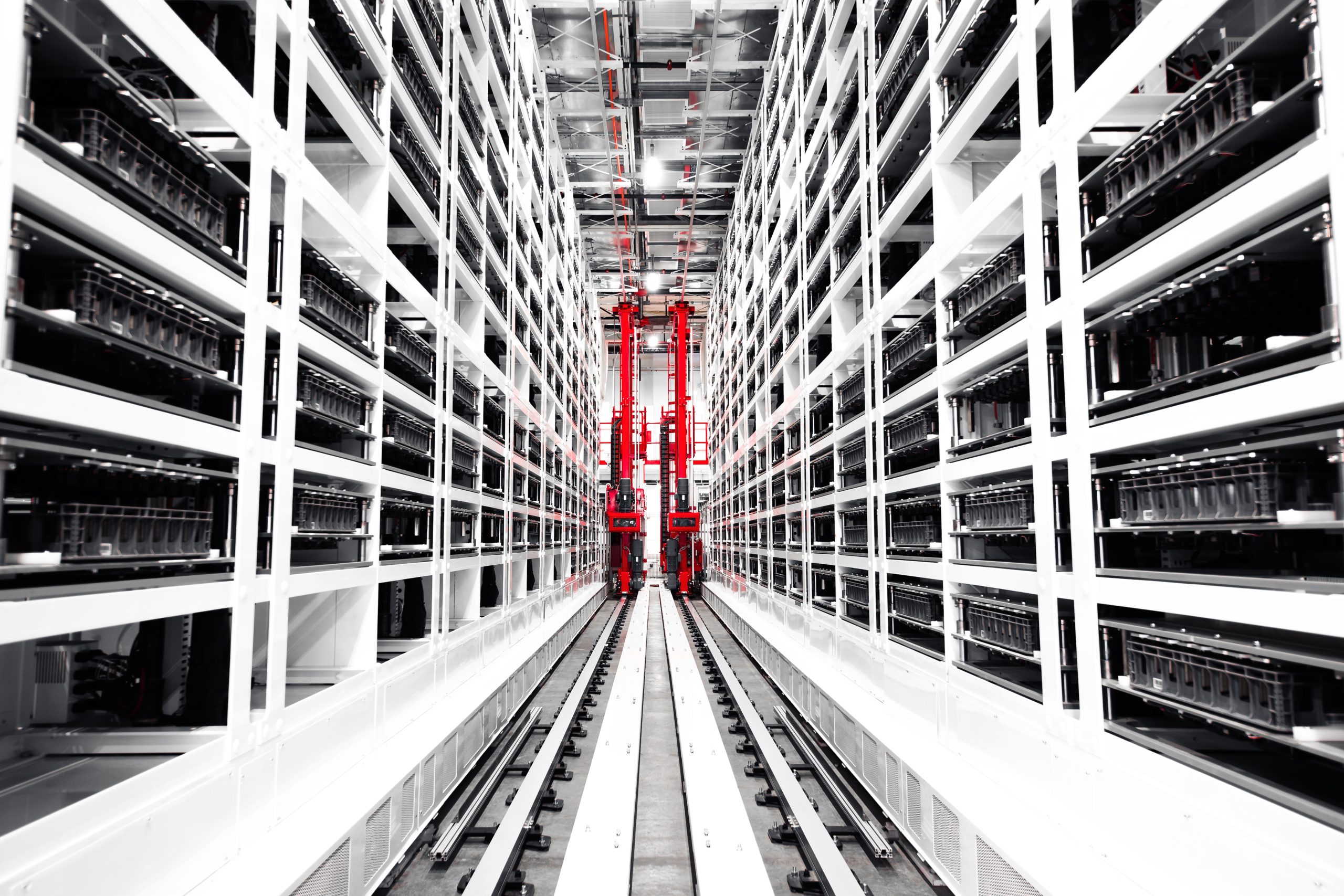
LG Energy Solution (LGES) will manufacture lithium iron phosphate (LFP) energy storage system (ESS) batteries for Tesla at its Lansing, Michigan facility.
The report was initially published by TheElec, citing industry sources.
LG Energy Solution’s Lansing plant, formerly known as Ultium Cells 3, was previously operated as a joint venture with General Motors. LGES acquired GM’s stake in May 2025 and now fully owns the site. With a production capacity of 50 GWh per year, it is one of the company’s largest facilities in North America.
LG Energy Solution is converting part of the Lansing factory to produce LFP batteries for energy storage systems. Equipment orders for the new lines have already been placed, and mass production is reportedly expected to begin in the second half of next year.
Last July, LG Energy Solution disclosed a 5.94 trillion won battery supply agreement running from August 2027 to July 2030. While the company did not name the customer, industry sources pointed to Tesla as the buyer.
Tesla has primarily used CATL’s prismatic batteries for its Megapack systems. The move to source prismatic LFP cells from LG Energy Solution’s U.S. plant could then be seen as part of Tesla’s efforts to bolster its North American supply base for its energy storage business.
For the Lansing conversion, LG Energy Solution reportedly plans to use electrode equipment originally ordered under its Ultium Cells venture with General Motors. Suppliers reportedly include CIS and Hirano Tecseed for electrode systems, TSI for mixing equipment, CK Solution for heat exhaust systems, A-Pro for formation equipment, and Shinjin Mtech for assembly kits.
Tesla currently manufactures energy storage products at facilities in California and Shanghai, though another Megafactory that produces the Megapack is also expected to be built in Texas. As per recent reports, the Texas Megafactory recently advanced with a major property sale.








